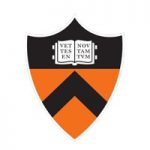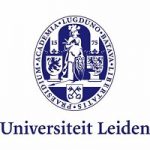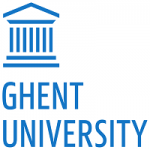项目介绍
COURSES:
First-year students are expected to enroll in three courses each semester (including HIS 500 in the fall). Second-year students ordinarily enroll in two courses the first semester and one course the second semester. Courses include: graduate seminars offered by the history department; graduate seminars in other departments; undergraduate courses; supervised research papers; and supervised general reading. Although much of each student’s program will be aimed at preparing for the general examination, students are strongly advised to take some courses in the first two years that do not fall within their general examination fields. For most students, the first two years of graduate school will provide the last opportunity to receive systematic instruction in subjects outside their specialized interests.LANGUAGE(S):
The minimum requirement of the department is a reading knowledge of either French or German (or Spanish in the case of American history). Within each field, the faculty decides which additional languages are required and the degree of proficiency that is required. In rare cases when the student, the student’s adviser, and the director of graduate studies all agree that the substitution of another language is reasonable, appropriate, and academically sound, some other language may be used in place of French or German. The following field requirements typically apply, although some sub-fields may require additional languages (applicants should check with the department if in doubt):
- American history—proficiency in either Spanish, French, or German; a high level of proficiency is required.
- British history—proficiency in either French or German; a high level of proficiency is required.
- East Asian history—proficiency in one East Asian language and one European language.
- European history—proficiency in two languages other than English, one of which is either French or German. Students in medieval history are normally expected to be proficient in Latin, French, and German. Students in Byzantine history should be proficient in ancient/medieval Greek, French, and German, and preferably Latin or one other ancient language.
- Latin American history—proficiency in two of the following: Spanish, Portuguese, French, or an indigenous language subject to faculty approval.
- Middle East history—proficiency in one Middle East language and one European language.
- Russian history—proficiency in Russian and either French or German.
- South Asian history—proficiency in one South Asian language and one European language.
The faculty of the history department set most of the language examinations. Examinations in some languages, however, may be administered by appropriate language departments at Princeton. Normally the examination consists of two passages to be translated, one with and one without a dictionary. Language examinations will be announced at the beginning of each semester. Other examinations should be scheduled in consultation with the director of graduate studies and (if appropriate) the department involved.
Entering students should arrange one language examination early in their first term. The department expects students to pass at least one language examination before enrolling for the second year. It is expected that all students fulfill the language requirement before taking the general examination and enrolling for a fifth term. In fields that demand more than two languages, all but one of them must be passed prior to enrolling for a third term. Second-year students who fail the language exam at the regularly scheduled time may petition the director of graduate studies and receive a second chance to take the exam in the same term, in order to fulfill the language obligation at a time that interferes less with generals preparation.PRE-GENERALS REQUIREMENT(S):
Students are required to write two research papers based on primary sources before sitting for the general examination. Students often write one of these research papers in the context of a graduate seminar, and another based on independent research. The first must be completed and certified by June 15 of the first year of enrollment, and the second by April 1 of the second year.
Students are required to fulfill the mandatory Responsible Conduct of Research seminar over the course of their first year.GENERAL EXAM:
The general examination tests the candidate’s knowledge of three distinct fields of historical study, one to be offered as the major field, and two as minors. To be eligible to complete the general examination, students must have fulfilled the appropriate language requirements and completed all of the work in the courses in which they have enrolled. No student with an incomplete from a course taken in the first three semesters will be permitted to complete the general examination until the outstanding course work has been finished.
The general examination consists of three written papers, one in each field, and an oral examination of not more than two hours. All three fields must normally be completed by May of the second year of study.
Examination fields are individually defined, in consultation with the director of graduate studies. Each field must be defined closely enough to permit the candidate to show evidence of intensive study, and broadly enough to have major historical significance. Common examples of examination fields include: Europe since 1870; the Ancien Régime and the Revolution in France; Tudor-Stuart England; Colonial and Revolutionary America; the United States, 1815–1920; Modern Japan; Modern Latin America; and the Atlantic world. Students are encouraged, if they wish, to choose a minor field in a subject from a discipline other than history. In all cases, candidates submit the titles of their fields to the director of graduate studies in the spring of their second year of study.
A student who completes all departmental requirements (coursework, language exams, and research papers, with no incompletes from the first year and first semester of the second year) but fails one or two of the general examination fields may take the exam a second time. A student who fails one or two of the examination fields needs to retake only the field(s) in which the student failed. If a student fails all three general examination fields, the Director of Graduate Studies will consult with the examining committee to determine whether the student should be reenrolled and given the opportunity to retake the exam or should be awarded the terminal M.A. degree and have his or her enrollment terminated. If the student fails the general examination a second time, Ph.D. candidacy is automatically terminated. The student must resolve any incompletes from the final semester’s coursework before the terminal M.A. degree may be awarded.QUALIFYING FOR THE M.A.:
The Master of Arts (M.A.) degree is normally an incidental degree on the way to full Ph.D. candidacy, awarded after the student has completed the general exam, but also may be awarded to students who, for various reasons, leave the Ph.D. program. Students who have satisfactorily passed all required coursework (with all incompletes resolved), fulfilled the language requirements in their field of study, and completed the two required research papers may be awarded an M.A. degree.TEACHING:
The Department of History tries to provide part-time teaching experience for most of the advanced graduate students who desire it. Funding is not dependent on teaching. Teaching assistantships generally involve two to four classroom hours a week and should not interfere with progress toward completing the dissertation. Appointments are made by the department chair, according to the needs of the undergraduate teaching schedule, to post-generals students.POST-GENERALS REQUIREMENT(S):
Prospectus: Students will normally participate in the department’s mandatory Dissertation Prospectus Workshop in June of the second year.
To be eligible, students must have passed their general examinations and have done so no later than their fourth semester of enrollment, or have special permission from the Director of Graduate Studies to participate. Passing the Prospectus Seminar is a required part of degree work in the department. Students are expected to participate actively and devote their time and effort to completing a fully shaped prospectus before the summer is over.
Continuation as an enrolled student into the spring semester of the G 3 year will be contingent upon approval of the prospectus. Students are required to have a meeting together with their adviser and first reader (or with their two co-advisers) in the weeks following the seminar. The purpose of this meeting is to provide an opportunity for the student to benefit from informal conversation with their key mentors regarding the intellectual and practical plans for the project. Their formal agreement is then given with the approval form, which should be signed by both the adviser and the first reader following the meeting, and which must be filed with the Graduate Office before December 1 of the student’s third year, or within six months of completing the general examination for students whose exams are split or delayed. DISSERTATION AND FPO:
Students are expected to complete the research and writing of the dissertation by the end of their fifth year of graduate study; earlier completion is certainly feasible in many cases.
The scope and length of the dissertation should be defined so that the dissertation can be completed in no more than three years of research and writing. The scope of the dissertation and its length vary from student to student; the decision scope and length, reached in consultation between the student and the supervisor, is based on the nature of the problem and the documentation. The completed dissertation may be as short as 75 pages or as long as 300. Only in exceptional circumstances should it exceed 300 pages. Whatever the scope or length, the dissertation must be capable of being developed for publication as a book or a series of articles in scholarly journals.
When the dissertation is completed, it is read by three readers in addition to the adviser; one of these three readers is normally not a faculty member of the Princeton history department. After the dissertation has been accepted, the candidate must pass a final public oral examination, which normally is conducted by a board consisting of the student’s adviser and the three readers.
The Ph.D. is awarded after the candidate’s doctoral dissertation has been accepted and the final public oral examination sustained.
联系方式
电话: 609-258-3000相关项目推荐
KD博士实时收录全球顶尖院校的博士项目,总有一个项目等着你!






